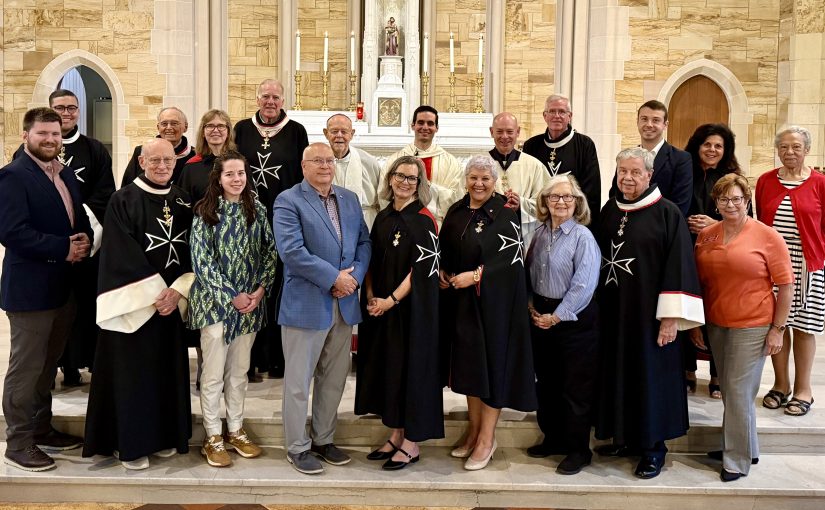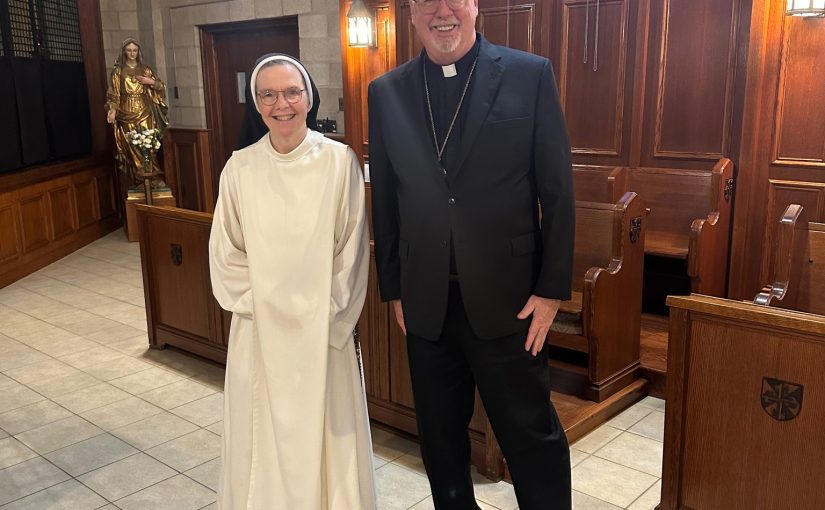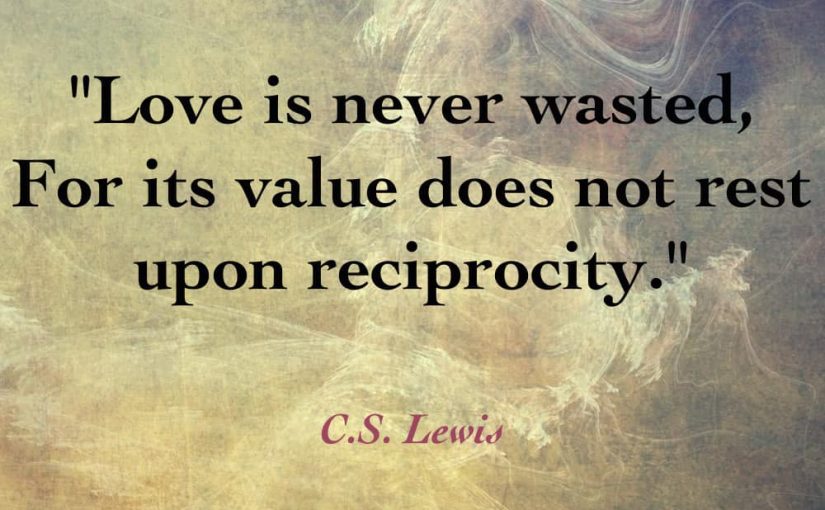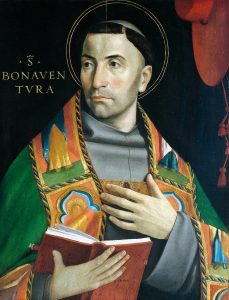 Saint Bonaventure: Friar, theologian, bishop, cardinal and doctor of the Church.
Saint Bonaventure: Friar, theologian, bishop, cardinal and doctor of the Church.
St. Bonaventure, a close friend of St. Thomas Aquinas, was deeply committed to both theology and philosophy and became a leading scholar in the Franciscan tradition.
What follows is an excerpt from his famous work The Journey of the Mind to God:
Christ is both the way and the door. Christ is the staircase and the vehicle, like the “throne of mercy over the Ark of the Covenant,” and “the mystery hidden from the ages.” A man should turn his full attention to this throne of mercy, and should gaze at him hanging on the cross, full of faith, hope and charity, devoted, full of wonder and joy, marked by gratitude, and open to praise and jubilation.
Then such a man will make with Christ a “pasch,” that is, a passing-over. Through the branches of the cross he will pass over the Red Sea, leaving Egypt and entering the desert. There he will taste the hidden manna, and rest with Christ in the sepulchre, as if he were dead to things outside. He will experience, as much as is possible for one who is still living, what was promised to the thief who hung beside Christ: “Today you will be with me in paradise.”
Let us die, then, and enter into the darkness, silencing our anxieties, our passions and all the fantasies of our imagination. Let us pass over with the crucified Christ “from this world to the Father,” so that, when the Father has shown himself to us, we can say with Philip: “It is enough.”
We may hear with Paul: “My grace is sufficient for you;” and we can rejoice with David, saying: “My flesh and my heart fail me, but God is the strength of my heart and my heritage for ever. Blessed be the Lord for ever, and let all the people say: Amen. Amen!”
St. Bonaventure, pray for us.
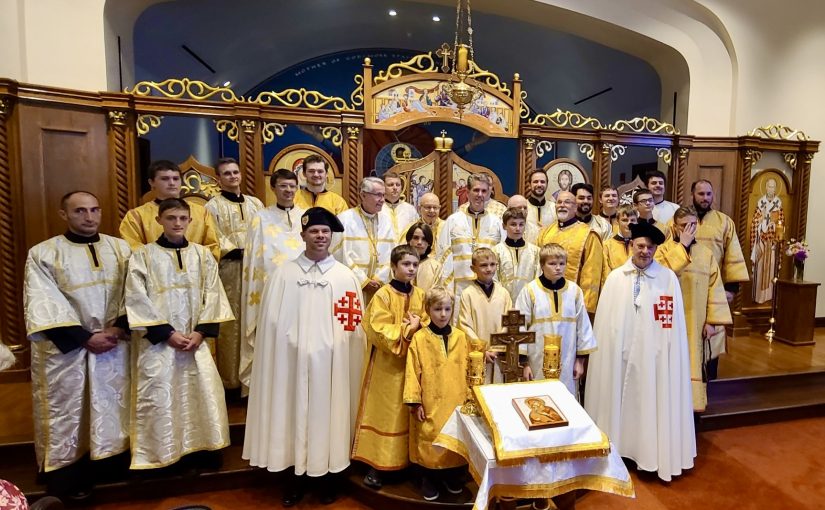
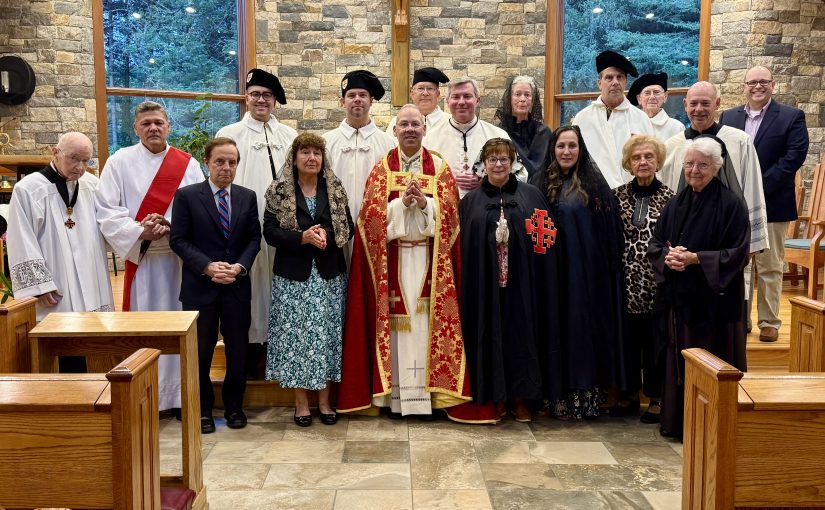
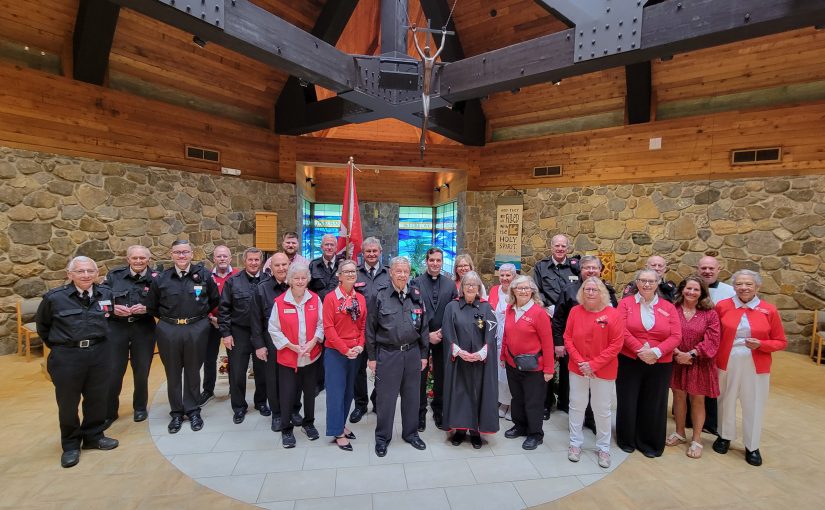
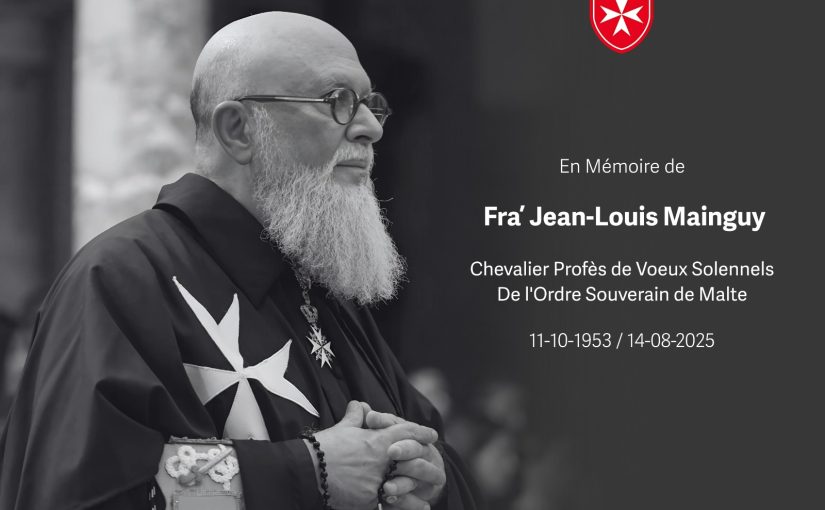

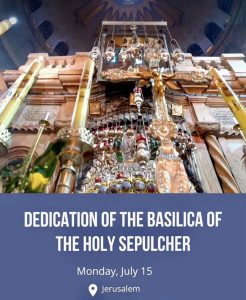 Today is a feast day for the Church of the Holy Sepulchre in Jerusalem. It’s the dedication day.
Today is a feast day for the Church of the Holy Sepulchre in Jerusalem. It’s the dedication day.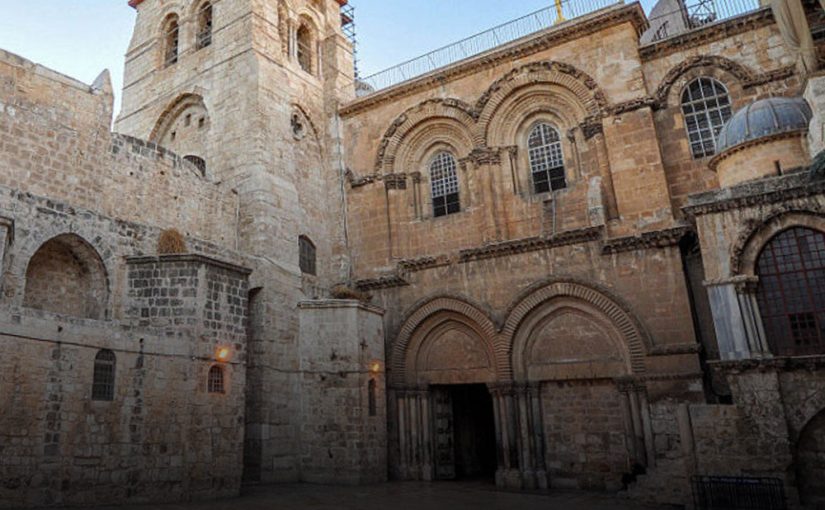
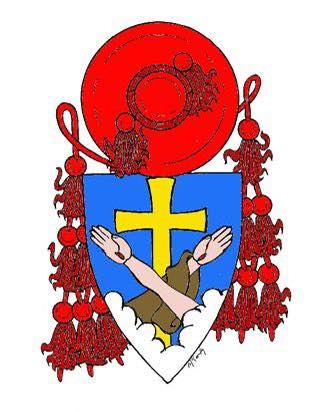
 Saint Bonaventure: Friar, theologian, bishop, cardinal and doctor of the Church.
Saint Bonaventure: Friar, theologian, bishop, cardinal and doctor of the Church.